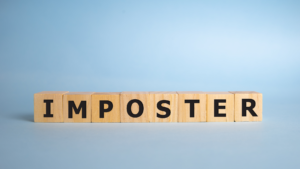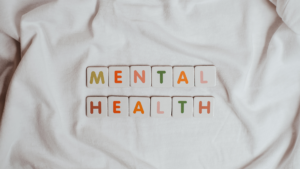Self-care broadly refers to a range of personal and professional skills and behaviours that contribute to your well-being and the maintenance of effective performance at work and in your personal life. It means doing things that make you feel better physically, emotionally, mentally and socially. It’s also about being kind to yourself. It doesn’t have to be about setting a lot of really challenging goals either; perhaps just be an activity that helps you feel more safe, more comfortable, healthier and looked after.
Many people find self-care hard. Some feel by prioritising themselves they are being selfish however the sayings ‘you can’t pour from an empty cup’ or ‘fit your oxygen mask before helping others’ are true. If you are in a good place, those around you will reap the benefits too. It can be challenging to find the time in between work or if you look after other people. And it is even more difficult if you are stressed, anxious or surviving trauma.
“Caring for myself is not self-indulgence, it is self-preservation, and that is an act of political warfare.” – Audre Lorde
For survivors of domestic, family, and sexual violence, self-care is not a luxury; it’s a vital part of the healing process—a radical act of survival and resistance. The trauma experienced by survivors can have profound and lasting effects on their physical, emotional, and mental well-being. Self-care is a crucial tool for recovery, helping survivors to rebuild their lives, restore their sense of self, and reclaim their strength.
How to care for your physical self. Join in on some yoga, get walking, or do any gentle exercise that can help to alleviate physical tension. Make sure you get plenty of rest and good nutrition and always seek medical advice when needed. These fundamental practices help restore energy levels, enhance physical resilience, and promote a sense of well-being.
Emotional self-care involves acknowledging and processing the complex emotions that arise from trauma. Create a safe space to express your feelings without judgement; talk to a trusted friend, join a support group, journal or do some art therapy. Taking care of your emotional self also means allowing oneself to feel joy, love, and peace by engaging in activities that promote these positive emotions.
Nurture the mind to mitigate the effects of trauma. Mental self-care can include mindfulness practices, meditation and other relaxation techniques. Counselling can help provide survivors with strategies to manage intrusive thoughts, build resilience, and develop healthy coping mechanisms.
Social self-care is about the importance of connecting with others who offer support and understanding or are on a parallel healing journey. Positive social interactions help counteract the feelings of isolation and loneliness that often accompany trauma. Survivors can find a sense of belonging and validation by building a network of supportive friends, family, work colleagues or community members.
In essence, self-care is a foundational component of recovery for survivors of domestic, family, and sexual violence. It empowers them to take control of their healing, prioritise their needs, and cultivate a life that is not defined by their trauma but by their strength and resilience. By embracing self-care, survivors can reclaim their power, nurture their well-being, and move forward with hope and confidence.
Adamas Nexus, is a post-crisis peer-based long-term support group for women survivors of domestic violence and sexual abuse. It is run online making it available Australia-wide enabling regional and rural communities and survivors to join meetings. Attending a peer-based support group meeting helps with meeting the emotional, mental and social self-care needs of survivors of domestic, family and sexual violence.
You are worthy of your focus. Start now. Try one, two or several of these: get moving, speak kindly to yourself, get out in nature, eat well and indulge a little, sort out a good sleep routine, breathe, create, get social, read, do a crossword, find a hobby.
Have you signed up to the Adamas Nexus Newsletter? Click HERE to sign up now.
Find Your Tribe So You Can Thrive – Tedx Talk with Kristine Hewett
Many people have had a traumatic incident in their lives, and we now all have the collective trauma of COVID. Why is there an expectation that we need to ‘get over it’ or ‘move on from it’? Lived experiences may well have happened in our past, but they have ongoing impact on our now and our future. Kristine wants to help people to do more than survive and to in fact thrive by finding their people or tribe.




